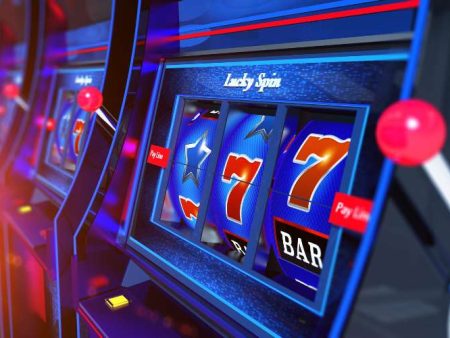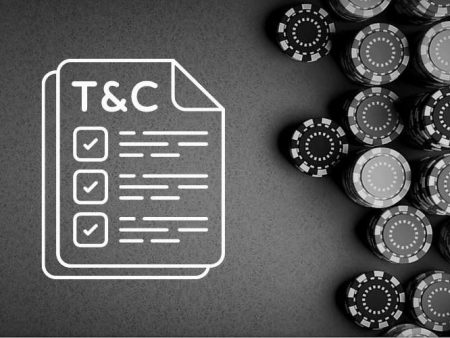
What's on this page
Gambling is a popular activity in the UK, but many people are concerned about its impact on their financial health, particularly their credit score. This article aims to shed light on the intricate relationship between gambling and credit scores, providing comprehensive insights into how gambling habits might affect your financial standing and loan applications.
What is a Credit Score?
A credit score is a numerical representation of your creditworthiness, derived from your credit history. It ranges from 300 to 999 in the UK, with higher scores indicating better creditworthiness. Lenders use credit scores to assess the risk of lending money to an individual. Your credit score is influenced by several factors, including:
- Payment History: Timeliness of past payments on loans and credit cards.
- Credit Utilisation: The ratio of your current credit card balances to your credit limits.
- Length of Credit History: How long your credit accounts have been open.
- New Credit: Frequency of recent credit inquiries and new accounts.
- Types of Credit: Mix of credit types, such as credit cards, mortgages, and instalment loans.
Understanding your credit score is essential as it affects your ability to obtain loans, credit cards, and even impacts mortgage rates.
Do Gambling Transactions Appear on a Credit Report?
Gambling transactions do not directly appear on your credit report. Credit reports focus on your ability to manage credit and repay debts, rather than specific spending habits. However, there are indirect ways gambling can impact your credit score:
- Cash Advances: If you use a credit card for gambling, it may be processed as a cash advance, which can negatively impact your credit score due to high-interest rates and fees.
- Missed Payments: Financial strain from gambling can lead to missed payments on other credit obligations, negatively affecting your score.
- High Credit Utilisation: Using credit cards to fund gambling can increase your credit utilisation ratio, lowering your credit score.
Will Gambling Affect My Mortgage Application?
Mortgage lenders in the UK scrutinise your spending habits more closely than other types of lenders. They typically request 3 to 6 months of bank statements and may conduct interviews to understand your financial behaviour. Here’s how gambling can affect your mortgage application:
- Visible Transactions: Regular or large gambling transactions on bank statements can raise red flags for lenders.
- Borrowing for Gambling: Using borrowed money to gamble, such as payday loans is seen as a significant risk factor.
- Debt Levels: High levels of debt due to gambling can impact your debt-to-income ratio, making you less attractive to lenders.
How Do Lenders Identify Gambling Activity in Potential Borrowers?
Lenders may identify gambling activity through various means:
- Bank Statements: Reviewing recent bank statements for regular or large gambling transactions.
- Open Banking: Some lenders use open banking to access your bank account activity directly.
- Credit Card Usage: Identifying cash advances or high credit utilisation on credit cards used for gambling.
How Long Should You Wait to Apply for a Mortgage After Stopping Gambling?
It’s advisable to wait at least six months after stopping gambling before applying for a mortgage. This period allows your bank statements to reflect more responsible spending habits and provides time to pay off any accrued debts. Here are some steps to improve your chances:
- Clear Debts: Focus on paying off any existing debts to improve your debt-to-income ratio.
- Build Savings: Increase your savings to demonstrate financial stability.
- Monitor Credit Score: Regularly check your credit report to ensure all information is accurate and your score is improving.
When Is Gambling Considered a Default Risk?
Gambling becomes a default risk when it leads to:
- High Debt Levels: Significant debt from borrowing to fund gambling activities.
- Missed Payments: Failing to meet payment obligations on loans.
- Inconsistent Income: Relying on gambling winnings as a source of income, which can be highly volatile and unreliable.
These factors indicate poor financial management and increase the likelihood of defaulting on future payments.
How Credit Cards Affect Your Credit Score
Credit cards can both positively and negatively impact your credit score, depending on how they are used:
- Positive Impact:
- On-time Payments: Consistently paying off credit card bills on time boosts your credit score.
- Low Credit Utilisation: Keeping your credit utilisation ratio below 30% positively affects your score.
- Negative Impact:
- High Utilisation: Using a large portion of your credit limit, especially for gambling, can lower your score.
- Cash Advances: Using credit cards for cash advances to fund gambling accrues high-interest charges and can signal financial distress to lenders.
Can a Spouse’s Gambling Debts Affect Your Credit Score?
Your spouse’s gambling debts can affect your credit score if:
- Joint Accounts: You have joint credit accounts, and payments are missed.
- Shared Responsibility: You co-signed for any loans or credit cards used for gambling.
- Debt-to-Income Ratio: Combined debts increase your household’s overall debt-to-income ratio, impacting creditworthiness.
Is It Possible for a Family Member to Access a Gambler’s Credit Report?
A family member cannot access another individual’s credit report without explicit permission. Credit reports are confidential and can only be accessed by the individual or authorised entities, such as lenders during a credit application process. However, if financial issues arise due to gambling, it might indirectly impact family members through shared financial responsibilities.
How to Prevent and Recover from Gambling Debt
Preventing and recovering from gambling debt requires discipline and support:
- Set Limits: Establish strict gambling limits and stick to them.
- Budgeting: Create and adhere to a budget that prioritises essential expenses over gambling.
- Seek Help: Contact organisations like GamCare or Gamblers Anonymous for support and counselling.
- Consolidate Debt: Consider consolidating high-interest debts into a single, manageable loan.
- Build Savings: Focus on saving money to build a financial cushion and avoid relying on credit.
Conclusion
While gambling itself does not directly affect your credit score, the financial behaviours associated with gambling can have significant implications. Responsible gambling, coupled with sound financial management, is crucial to maintaining a healthy credit score and securing loans or mortgages. If gambling is impacting your financial health, seek professional help and take proactive steps to manage and recover from debt.





